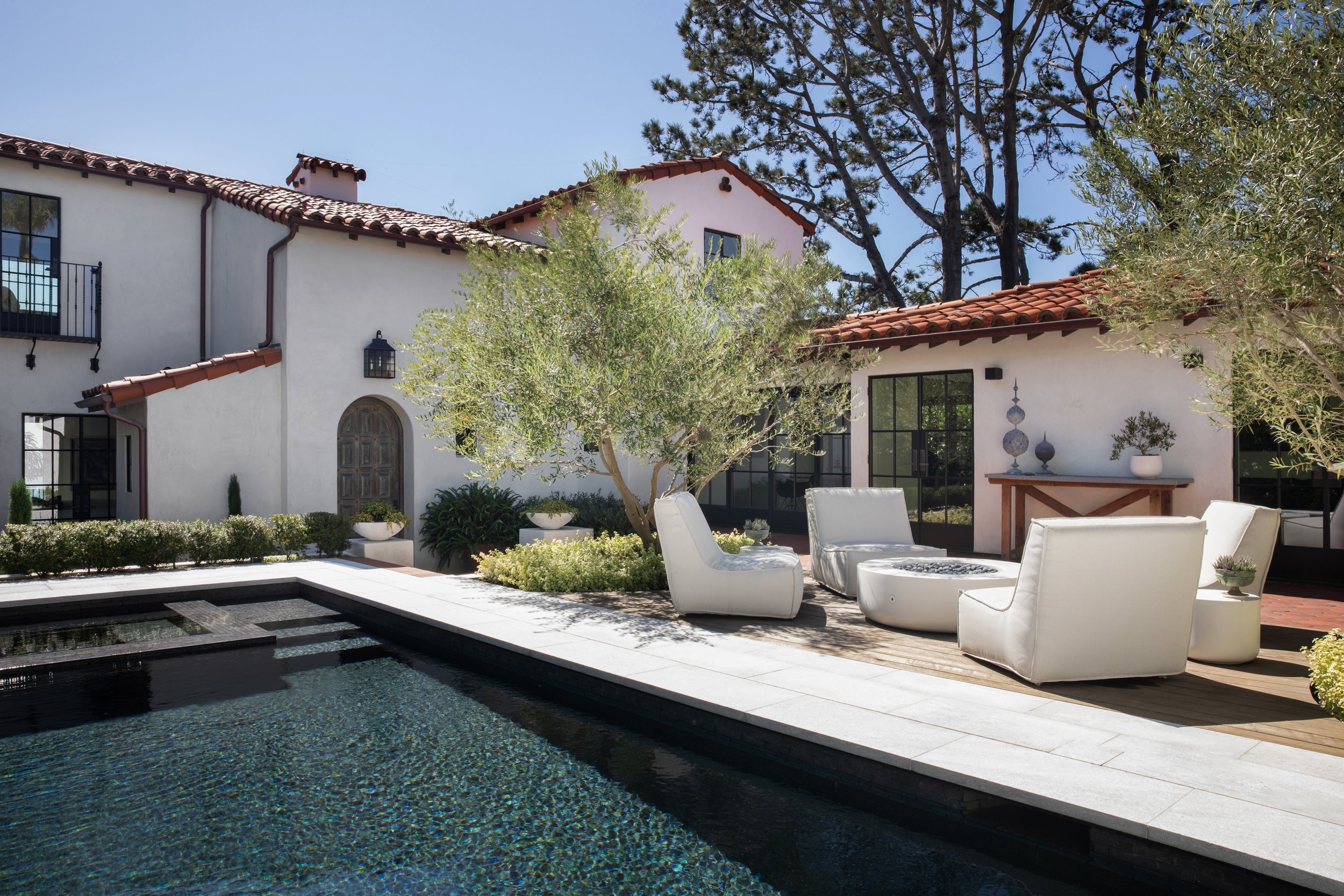By Hunter Fuentes and Jon Stordahl
Where Privacy Is Paramount
William F. Buckley, the late political philosopher, intellectual and author loved the sea. He navigated his sailboat across the Atlantic on four separate occasions, yet when asked, “What was your favorite journey?” he replied, “Home.” That’s a sentiment all of us can relate to. Our home is where we feel most comfortable and safe.
This month, we want to introduce you to the Davis family home in Three Arch Bay. We met the owners at a Heritage Committee meeting last February. During their comments, successfully seeking placement of their home on the city’s Historic Register, Mr. Davis had stated that they had “… finally found a house that needed them as much as they needed it.”
We were intrigued.
Three Arch Bay is one of the most remarkable neighborhoods in Laguna. Gaining entry through those gates is like entering the secret garden, hidden, peaceful, calm, beautiful. The Davis home sits on the cliffs at 11 La Senda Place, overlooking the sea. The Mediterranean Revival residence was in neglectful disrepair, including extensive water damage and mold, when they first saw it in 2018. With decades of experience building new and restoring old homes, the Davis family could see the property’s potential. After nearly two years of negotiations with the previous owners, they finally took possession in 2020 and began an extensive 14-month rehabilitation project. Working with the architectural firm D’Arcy and Associates, they carefully planned to restore the home as close to its original state as possible. The house was designed and built by Ropp & Mackey in 1933. It was extensively remodeled in the 1980s into something more tropical and evocative of coastal Mexico than Italy. As the Davis project unfolded, many buried original features were uncovered, including windows on the front façade and the simple but striking fireplace surround. They modernized the interior spaces without sacrificing any of the historic charm.
Whale Rock in Three Arch Bay. Photos / Laguna Beach Historical Society
The Davis Residence. Photo / Darlene Halaby Photography.
A great example is moving the kitchen to the northwest corner to take advantage of the stunning view and be incorporated into the great room. The Davises installed a discreet elevator to make movement between the three levels practical for the home in which they plan on aging in place. They also filled the house with an interesting mix of vintage and contemporary furniture, art, and lighting, giving the home a relaxed elegance. The interior spaces feel fresh and modern, but the bones of the Ropp & Mackey work are evident throughout. The revival of the Italian spirit of the original home continues with the landscape and exterior hardscapes. The residence is sometimes called the “Amalfi House.” It is easy to imagine it on a hillside overlooking the Bay of Naples.
But the house also has a special energy. One of the most intriguing things we’ve noticed as we research the architectural history of our town is the number of unmarried women who made up the early settlers. Today, we often skip over traditional honorifics like Mr. and Mrs., but in the recent past, they carried great significance. Miss was used to identify an unmarried female, but beyond a certain age, say 30, it induced a subtle judgment that she was of somewhat lower status than a married woman. Society pitied the old maid, the spinster.
Photos / The Davis Residence
The Davis home was built for two such women, Miss Grace L. Dodge and Miss Mary G. Cummings. They carved out a life together that spanned almost half a century. They were both teachers at The Principia School in St. Louis. Teaching was one of the only professions open to single women. They shared the same address in the 1900, 1910, 1920, 1930, and 1940 censuses. The description of their relationship as “partners” on the 1920 census was particularly interesting. Their names appear on ship manifests for regular European vacations all through the first three decades of the last century. They retired to Laguna Beach in 1932 and built one of the first homes in Three Arch Bay.
The original developers of the community marketed the neighborhood as “Three Arch Bay – Where Privacy is Paramount.” The idea of building a refuge far from the prying eyes and judgments of others, of living an authentic life must have appealed to Grace and Mary. Grace served on the homeowners’ board, Mary was active in the Daughters of the American Revolution, and they frequently entertained friends. They were home.
One of my favorite books is “One Hundred Years of Solitude” by Gabriel Garcia Marquez. I love the title. He noted, “All human beings have three lives: public, private, and secret.” Mary Cummings died in 1944. Grace Dodge died in 1950. They chose to be buried side-by-side in Westminster Memorial Park. They have spent more than a hundred years not in solitude, but in partnership. In the Amalfi House, you can feel Grace and Mary’s private and secret lives protected in the home they built, and the Davis family saved.







